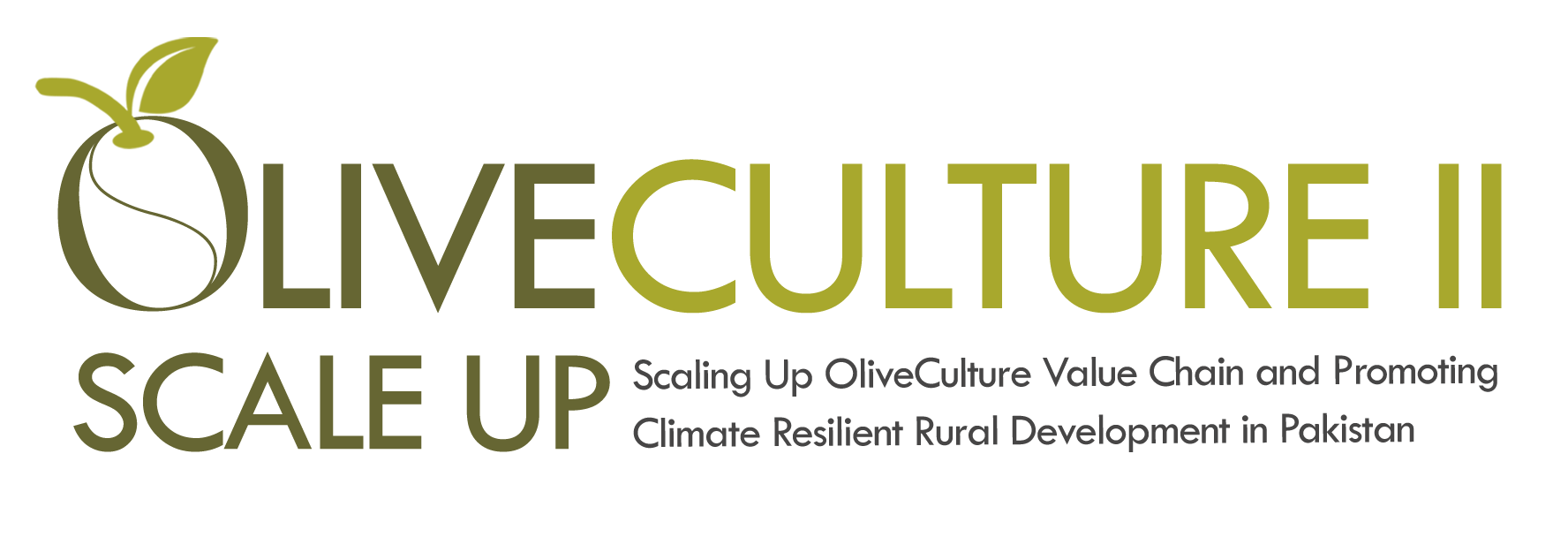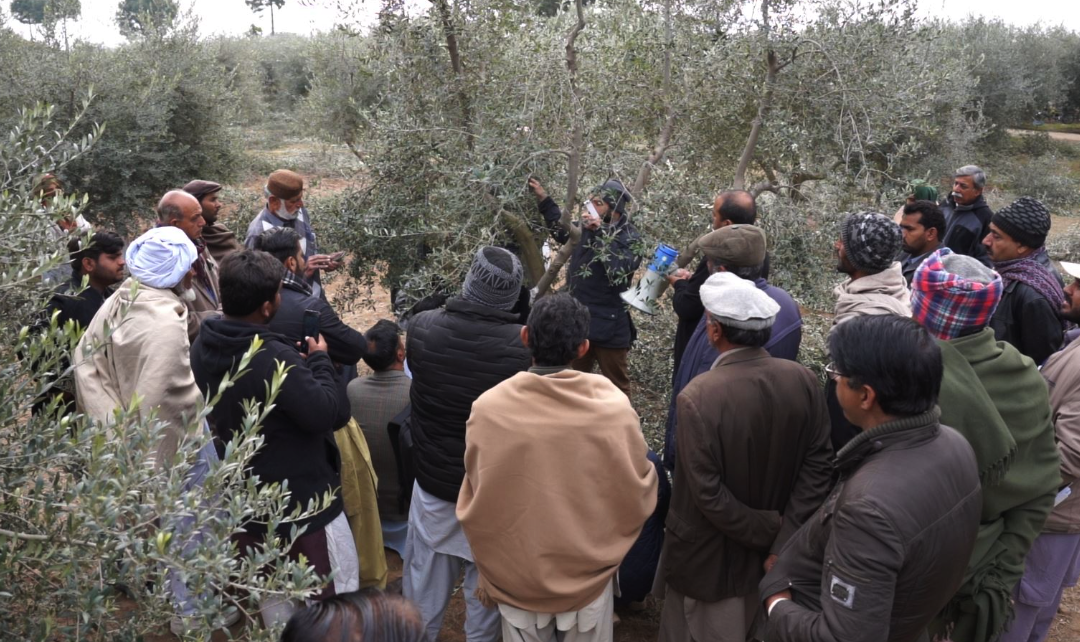The olive oil industry is a captivating realm where nature’s bounty meets human dedication and ingenuity. At the heart of this industry are the farmers who tirelessly cultivate and nurture olive trees to produce the golden elixir we know and love. In this blog, we’ll explore the essential role played by these farmers, their struggles, efforts to sustain olive farming, and their eagerness to adopt modern techniques like Good Agricultural Practices (GAP) training to achieve high-quality production. We’ll also delve into the OliveCulture project and how it supports farmers, along with shedding light on Italy’s supportive role for the Pakistani Olive Oil industry.
- Farmers’ Struggles and Efforts
Olive farming is no simple feat; it demands hard work, patience, and a deep understanding of the land and its intricacies. Farmers engage in labor-intensive tasks throughout the year, from pruning and watering to protecting trees from pests and diseases. Harsh weather conditions, uncertain yields, and market fluctuations add to their challenges. Despite these hurdles, the farmers’ dedication to their craft is unwavering. They possess Good agronomic practices and technical knowledge in collaboration with the Italian experts, which they skillfully combine with contemporary agricultural practices.
In regions like Pakistan, where the olive industry is gradually gaining momentum, farmers are especially crucial in shaping its future. Many of them have embraced olive farming as a sustainable alternative to traditional crops, recognizing the long-term benefits it offers for their livelihoods and the environment.
- Embracing Modern GAP Practices and Techniques
The adoption of modern agricultural techniques is pivotal in enhancing productivity and ensuring a consistent supply of high-quality olives. Farmers are keen on learning about the latest advancements and best practices, which is where initiatives like GAP training play a crucial role. Good Agricultural Practices provide farmers with the knowledge and skills to optimize irrigation, manage soil health, and implement pest control measures in an environmentally sustainable manner.
Through OliveCulture’s technical training sessions, farmers gain insights into efficient harvesting methods and post-harvest processes, such as pruning, nursery management, proper handling and storage techniques. These endeavors translate into better yields and improved olive oil quality, boosting the overall competitiveness of the industry.
- The OliveCulture Project
The OliveCulture project stands as a beacon of support for farmers in the olive oil industry. This initiative focuses on capacity building, research, and development to empower farmers with knowledge and resources. Collaborations between CIHEAM Bari agricultural experts, research institutions, and local farmers are fostered under this project.
One of the main objectives of the OliveCulture project is to strengthen the olive value chain. This involves providing farmers with access to modern equipment, promoting sustainable farming practices, and facilitating market linkages. By fostering knowledge exchange and technical support, the project ensures that farmers are equipped to overcome challenges and elevate the olive oil industry to new heights.
- Italy: A Supportive Pillar for Pakistani Farmers
Italy, a world-renowned hub for olive oil production, has played a significant role in supporting Pakistan’s farmers. Through bilateral cooperation and knowledge sharing, Italy has extended a helping hand to enhance Pakistan’s olive cultivation practices.
The Italian government, along with private sector entities, has been actively involved in providing technical assistance and training programs. These initiatives aim to bolster the capabilities of Pakistani farmers by drawing from Italy’s extensive experience in olive farming.
Furthermore, Italian expertise in olive tree varieties and agricultural machinery has proven invaluable in advancing Pakistan’s olive sector. Through collaborative efforts, the two nations have strengthened ties and fostered mutual growth in the olive oil industry.
Conclusion
The olive oil industry owes its very existence to the unwavering commitment of farmers who nurture olive trees with passion and dedication. Their struggles and efforts to sustain olive farming are commendable, and their eagerness to adopt modern techniques showcase their determination to achieve excellence.
Projects like OliveCulture and collaborations with the CIHEAM Bari’s Italian experts demonstrate the power of cooperation in empowering farmers and fostering growth within the olive oil industry in Pakistan. With continued support, technical advancements, and sustainable practices, the future of the olive oil industry looks bright, ensuring a steady supply of this liquid gold for generations to come.

